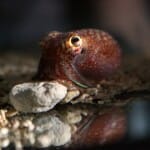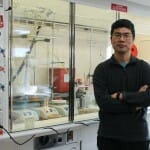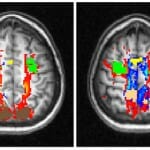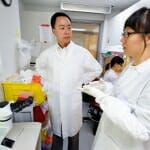Tag Research
Wendt appointed associate vice chancellor for research in the physical sciences
“My unintended role as a trailblazer has led to a career-long pursuit of diversity in STEM,” says Wendt, a professor of electrical and computer engineering. Read More
New projects study root causes of inequalities and how to reduce their effects
“The projects ... stand to produce real-world, actionable knowledge about how programs, policies and practices can be leveraged to reduce inequalities in U.S. society,” says Associate Vice Chancellor Lonnie Berger. Read More
Guggenheim Fellowship awarded to UW–Madison psychology professor
Seth Pollak’s research focuses on the influences of environmental risk factors on children’s brain and behavioral development, with particular focus on emotions and learning. Read More
Health tool significantly reduces medication over-prescription, improving patient safety
A new study from a team of researchers at the University of Wisconsin–Madison has found that the e-prescribing tool CancelRx more than doubled the proportion of successfully discontinued medications, from 34 percent to 93 percent, at UW Health, a major health system in Wisconsin. Read More
Artificial intelligence can accelerate clinical diagnosis of fragile X syndrome
Researchers from the Waisman Center found that people with fragile X are more likely to also have a variety of circulatory, digestive, metabolic, respiratory, and genital and urinary disorders. Read More
New condenser makes water from air, even in the hot sun
Unlike other radiative vapor condensers which can only operate at night, the new design works in direct sunlight and requires no energy input. Read More
Disrupted biochemical pathway in the brain linked to bipolar disorder
The results offer a foundation for research into treating the often-overlooked cognitive impairments of bipolar disorder, such as memory loss, and add to a growing understanding of how the biochemistry of the brain affects health and disease. Read More
Microbiome Challenge identifies winning projects, from wound healing to smart probiotics
The grants provide funding not readily available from government agencies to build momentum behind technologies with high societal impact and revenue potential. Read More
Study finds evidence of Bartonella infection in schizophrenia patients
The research led by Erin Lashnits was, by design, not able to demonstrate a causal link between Bartonella infection and schizophrenia, but a larger study is planned to see whether the preliminary results are borne out. Read More
Enter your best science images in the 2021 Cool Science Image Contest
To celebrate the exploratory and artistic value of those images and videos, the 11th annual Cool Science Image Contest is soliciting the best visuals from members of the UW–Madison community. Read More
New method targets disease-causing proteins for destruction
The technology, developed by UW–Madison Professor Weiping Tang and colleagues in the School of Pharmacy, could produce entirely new kinds of drugs. Read More
Veteran finds hope for her dog, others, in melanoma treatment study
“The fact that he would not only be receiving some of the best, most advanced treatment options, he would be a part of something so much bigger for future fur friends, humans, and in support of my brothers and sisters in arms, our purpose was clear,” she says. Read More
Invasive species often start as undetected “sleeper populations”
The finding has important implications for the way we approach invasive species control and management, researchers say. Read More




















